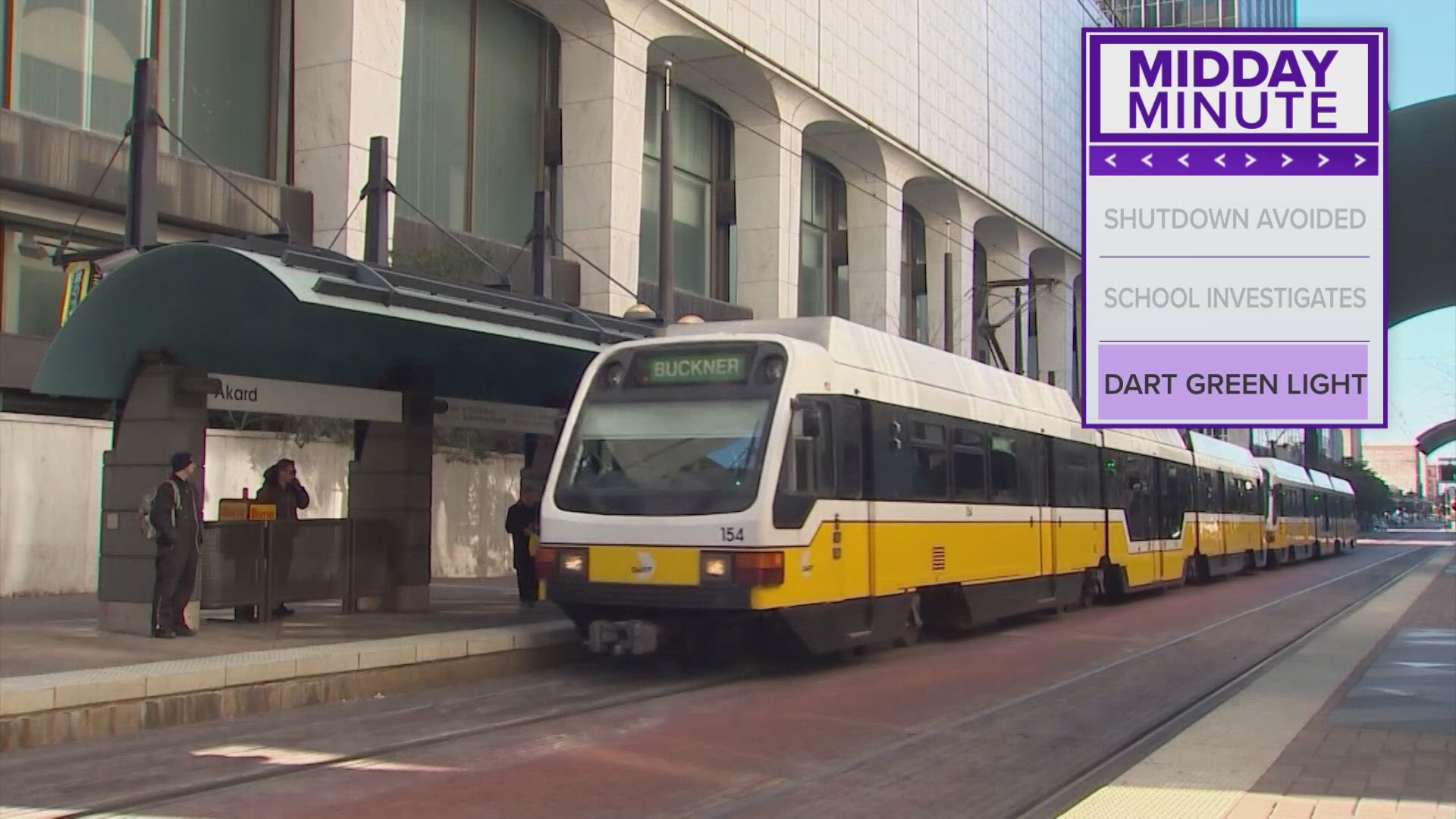DALLAS — The Dallas Area Rapid Transit board of directors this week approved a new nearly $1.8 billion budget that avoids cuts to service, but still caps spending beyond what officials had previously proposed.
The vote came after weeks of debate over how much the agency should limit growth in its operating budget. The board had been split over whether or not to approve the staff-recommended budget, which increased the operating budget by 5.5%, or one that would have increased the operating budget by 4.6%. The agency confirmed the budget ultimately passed by the board sees the operating budget grow by 4.9%. The $1.76 billion budget marks a 2.15% reduction from the fiscal year 2024 budget, a DART spokesperson confirmed.
“This budget fully funds additional service increases implemented in FY 2024 and will enable us to improve our paratransit and on-demand GoLink services,” DART spokesperson Jeamy Molina said.
During the board meeting Tuesday, DART board member Patrick Kennedy proposed an amendment to the budget to add at least $1 million to employee pension contributions. That amendment failed to pass. The board approved the budget in a 9-4 vote, though.
“I don’t know how this board can…follow the motion that’s been presented after hearing from these many people who uniformly understand what’s going on and support 5.5%, in other words, staff’s recommendation…If the voice of the public doesn’t matter, I just don’t know what would compel us to do the right thing,” said DART board member Enrique MacGregor, who represents Cockrell Hill and Dallas on the board.
Some transit advocates spoke against a growth cap below 5.5% during the meeting Tuesday.
“Against the backdrop of numerous DFW cities and maybe later the state legislature trying their best to kneecap DART, I don’t think DART should kneecap itself,” Brinda Gurumoorthy said. “The 5.5% already compromises on benefits for employees who are really the people who make DART run. I also remain baffled by the concept of there being too much growth for DART. As people who lead DART and who should be operating in DART’s best interest, how can you believe that there’s such a thing as investing too much in riders or workers?”
Paul Wageman, who represents Plano on the board, has advocated for spending cuts and said the final budget reduces proposed operating expenses by “a very small amount.”
“It’s redirecting some of these funds so that it can be put into a fund that will actually help the agency execute this year if they’re ready to do it on some of the goals that are identified in the strategic plan,” Wageman said.
Most of DART’s revenue comes from a penny sales tax contribution from DART’s 13 member cities (Addison, Carrollton, Cockrell Hill, Dallas, Farmers Branch, Garland, Glenn Heights, Highland Park, Irving, Plano, Richardson, Rowlett and University Park).
Several DART member cities, including Plano (the largest contributor to DART behind Dallas), Highland Park, Irving, and more, have passed resolutions in support of reducing the amount of sales tax revenue they send to DART by a quarter. Cutting their contributions to DART, though, would require approval by the DART board.

